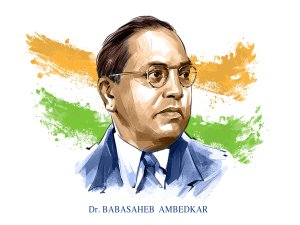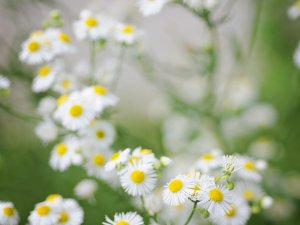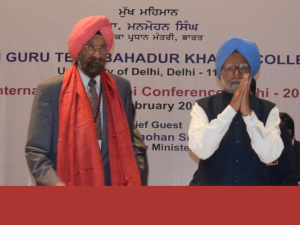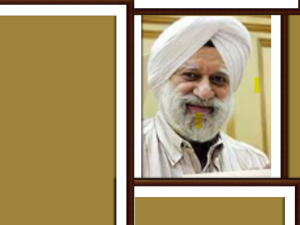Sardar Bahadur Ujjal Singh has played a unique role in modern Sikh history. He was nominated as a Sikh participant in the First Round Table Conference in London in 1930 presided over by King George V to discuss constitutional reforms for India. He was also invited for the Second Round Table Conference in 1931 which was attended by Mahatma Gandhi, Muhammad Ali Jinnah and other national leaders. He belonged to an illustrious family and served the community and the country as a parliamentarian and noted public figure.
S. Ujjal Singh was born on 27th December 1895 in the village of Hadali in Pakistan to Sardar Sujan Singh and Lakshmi Devi. He was the younger brother of Sir Sobha Singh, (the father of Khushwant Singh, noted journalist and writer) the well-known builder of New Delhi His father, S. Sujan Singh was a tradesman by profession who had turned to dealing in real estate and built a vast empire. His family ancestry can be traced back to Bhai Sangat Singh, one of the martyrs who died in second battle of Chamkaur in 1704 along with the two elder sons of Guru Gobind Singh, Sahibzadas Baba Ajit Singh and Baba Jujhar Singh.
Ujjal Singh’s education began in a traditional way in the Gurmukhi School in the village. He also went to the Makatab madrassa to learn Urdu and Persian. From there he went to Khalsa Collegiate School at Amritsar. He finished his university education at Govt. College Lahore where he received his Master’s Degree in History. He distinguished himself as a sportsman and was a member of the college Hockey Team. Attracted by the opportunities for work offered by the new city of Delhi, then under construction by the British, his father and elder brother moved to Delhi. Ujjal Singh stayed behind to manage the family’s vast tracts of land spread across Multan, Montgomery Districts and Sargodha district. One can gauge the extent of their lands when one learns that they extended from one Railway Station, Mian Channu, to the next one, Kot Sujan Singh, named after his father.
S. Ujjal Singh demonstrated great interest in Sikh affairs. He was a member of the first Shiromani Gurdwara Parbandhak Committee (SGPC) founded in 1920. He was elected a member of the Punjab Legislative Council in 1926 and he remained a member till 1956.
After his return from London, he was appointed a member of the Viceroy Consultative Committee on Reforms but he resigned in August 1932 in protest against the Communal Award, which was rejected by the Sikh community as it believed that inadequate representation was given to the Sikh community in separate electorates. From 1937-1942, he served as the Parliamentary Secretary, Home in the Unionist Ministry in Punjab. He was a close confidant of the Akali leader, Master Tara Singh and one of the main consultants during negotiations with the British Government. He was a member of the Sikh delegation that met Sir Stafford Cripps in 1942. Then in 1945, he was chosen by the government to be one of the Indian delegates to the UNO Conference on Food and Agriculture in Canada. He was also elected as a member of the Constituent Assembly for preparing the constitution of free India. That he was immensely popular and capable can be gauged from the fact that he remained a legislator till after 1947 when India got independence.
As a consequence of the partition of the country in 1947 he had to leave his entire vast estate in Pakistan and cross over to India as a homeless refugee and moved to Shimla. He was re-elected to the newly constituted Legislative Council of Punjab and became a Minister of various departments and worked for the rehabilitation of refugees. People still appreciate his role as Minister of Industries and Civil Supplies, and later as Finance and Industries Minister between 1949-1956.The Government of India, recognising his expertise, made him a member of the Second Finance Commission set up by the Government of India in June 1956, a position that he served till September 1957.
Soon after the Indo-Pak War in 1965, Ujjal Singh was appointed as the Governor of Punjab in September 1965 during a most crucial period in Punjab politics. During the entire Akali agitation in Punjab, especially during the Punjabi Suba Movement, he was of great help to both the Central government and the Akali party in the negotiations. He succeeded in having joint meetings with various politicians from Punjab and Haryana in order to come to a settlement; which ultimately led to the creation of separate states of Punjab and Haryana. In 1966, he was made the first Governor of Tamil Nadu from where he retired in May 1971. During his stint in Tamil Nadu, he visited the Gurdwara every day in the city as part of his routine.
S. Ujjal Singh’s contributions to the Sikh community and the country are multiple and are still etched in golden letters. Apart from the laurels achieved which are mentioned above, he was the Founder President of Guru Nanak Public School in Chandigarh, that he envisioned the setting up of. He set the ball rolling of the 3rd centenary birth anniversary of Guru Gobind Singh (1966) and the 5th centenary birth anniversary of Guru Nanak (1969) when he presided over a big convention in Tagore Theatre in Chandigarh. I had the privilege to be present in that conference when he announced the formation of two bodies – Guru Gobind Singh Foundation and Guru Nanak Foundation. He announced a grant of Rs. 25 lakhs to each of these, and made Maharaja Yadvindra Singh of Patiala the President, and Giani Zail Singh as the Secretary of both these foundations. He also helped to set up Guru Nanak College in Madras by donating a piece of land as the Governor. He promoted Punjab Association and helped in making Shaheed Bhagat Singh School in the city. He was a member of the Punjabi University Commission set up in 1960 and was instrumental in setting up of Punjabi University, Patiala in 1962.
I feel that as a community we should always remember and pay gratitude to him for also highlighting the contribution of the poet and scholar, Bhai Vir Singh. He built Bhai Vir Sadan near Gole Market, New Delhi which is now one of the most sought after religious and cultural centres in the city. He restored Bhai Vir Singh’s house in Amritsar as a Heritage House. I was present when a day before taking oath as the President of India Giani Zail Singh went to meet him at the residence of his nephew, S. Khushwant Singh, journalist and writer.
Sardar Ujjal Singh passed away in Delhi on 15 February 1983.
SikhNet is honored that Sardar Tarlochan Singh ji, EX-MP, Former Chairman National Commission Minorities, India is sharing his personal recollection of historical events with our audience.
The opinions expressed here are personal to the author and do not necessarily reflect an editorial position of the SikhNet staff or board.





